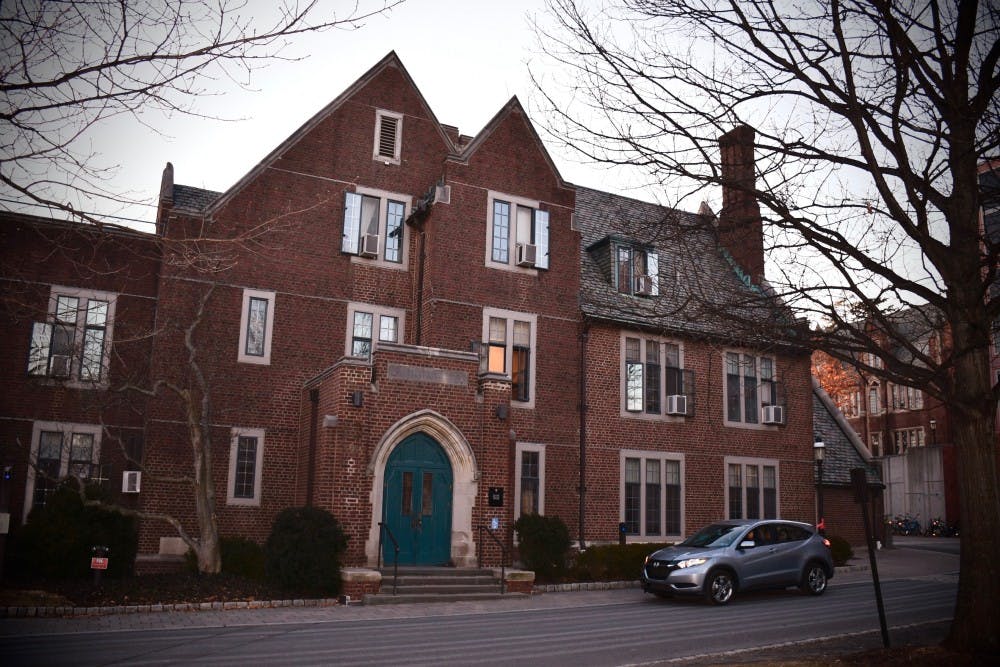As the monkeypox (MPX) virus continues to spread throughout the United States, University Health Services (UHS) issued a message to the campus community, shedding light on steps it has taken to prepare for possible cases and exposures. The Aug. 11 email from Dr. Irini Daskalaki, Global and Community Health Physician at UHS, and Robin Izzo, Assistant Vice President for Environmental Health and Safety, marked the University’s first public acknowledgment of the virus.
Some students previously expressed anxiety surrounding the national wave of MPX infections, leading to calls on the University to clarify its response. With many documented MPX cases being among men who have sex with men (MSM), members of the University’s queer community who may be more vulnerable have urged the community to address the public health threat.
Beyond Princeton, a Morbidity and Mortality Weekly Report from the Centers for Disease Control and Prevention (CDC) showed that “among U.S. monkeypox cases with available data, 99% occurred in men, 94% of whom reported recent male-to-male sexual or close intimate contact.” MPX was also noted to differentially impact minority populations.
Amid such reports, the email from UHS stressed the importance of community vigilance surrounding MPX guidance.
“While men who have sex with men and trans women communities have experienced a greater increase of exposure to the MPX virus, anyone can contract the virus. Therefore, it is important that every member of our campus community take seriously public health guidance about MPX,” wrote Daskalaki and Izzo.
Max Peel ’25, a student who identifies as nonbinary and bisexual, voiced sentiments of relief in response to the UHS statement, which decentralizes the virus from any singular population by stressing community responsibility.
“I’m very glad to have received a response from the university. It’s relieving to know that UHS is making plans for how to deal with emergent MPX cases and the fact they emphasized that anyone can contract the virus,” they wrote in an email to The Daily Princetonian.
Still, Peel said they remain apprehensive about the virus’ potential consequences for students’ overall health and wellness.

“I’m obviously still concerned about the risk to students and the potential impact it could have on any student’s wellbeing this coming semester, but at this stage I can understand that we sort of have to play it by ear and see what happens over the coming months,” Peel said.
UHS has since updated a page detailing information about the virus, including the latest outbreak’s transmission patterns, signs and symptoms, and how the infection is spread. The site also outlines new University policies on isolation, vaccination, and treatment.
Individuals who believe they have been exposed to monkeypox will be required to isolate until they receive test results. According to Daskalaki, samples collected through UHS will be processed by Quest Diagnostics.
Once a student tests positive, they will be required to isolate “at home or at another location” until the rash heals and new skin has formed, a process which may take two to four weeks. Undergraduate and graduate students living on campus will receive information from UHS regarding on-campus isolation locations as well as isolation dining protocol. According to this guidance, in a 12-week semester, testing positive for MPX would therefore require that students isolate away from campus for up to one-third of the term.

Philip Maruri ’23, who previously contacted UHS and the Gender and Sexuality Resource Center to advocate for greater transparency as the University prepared its response to the virus, shared with the ‘Prince’ that he is “happy to see that they’ve made official communication about the disease.” But Maruri said he still feels that UHS communications left some guidance unclear.
“It would be good if more details were available, especially on if isolation housing will be available to MPX patients, their plans to ensure access to the vaccine,” Maruri wrote, “and elaborate whether they will have tests available on campus.”
The Aug. 11 message states that eligible community members “should strongly consider being vaccinated.” The University’s newly launched page on monkeypox, however, does not make such a blanket recommendation. The site provides links to New Jersey, New York, and Pennsylvania state criteria for the vaccine, but requests that individuals “consider whether… [they] meet all aspects of eligibility” before scheduling an appointment to prioritize “those who are in highest need.”
This specification comes amid a limited supply of JYNNEOS, the primary pre-exposure prophylaxis vaccine approved for use against monkeypox in the United States. Amid federal shortages, both Daskalaki’s email and the UHS page confirm that the University is monitoring access to the vaccine in New Jersey. Currently, the University is not authorized to administer the vaccine, but is prepared to refer community members to New Jersey Health Department clinics. Students who have received a vaccine are encouraged to upload a record of the vaccination to the MyUHS portal.
Aside from vaccine, the CDC notes that the antiviral therapeutic TPOXX (tecovirimat) is being explored as a possible treatment option for those infected with MPX, following the published results of a U.K. retrospective observational study. While its use is not FDA approved for monkeypox treatment, making it highly experimental, it has seen use for “for primary or early empiric treatment” of monkeypox via a non-research expanded access Investigational New Drug protocol. UHS echoed the CDC criteria on this matter, stating that “only people who meet certain criteria will be eligible for antiviral medications.”
Correction: A previous version of this article stated that Quest Diagnostics managed COVID-19 surveillance for the University. In fact, Quest Diagnostics is only responsible for processing MPX samples for the University.
Editor’s Note: This piece has been updated to reflect on-campus isolation protocols for undergraduate and graduate students who are living on campus.
Anika Buch is an Associate News Editor at the ‘Prince’ who typically covers STEM communities and on-campus research. She can be reached at ambuch@princeton.edu.
Tess Weinreich is an Assistant News Editor and features contributor for the ‘Prince.’ She can be reached at tw7353@princeton.edu.








